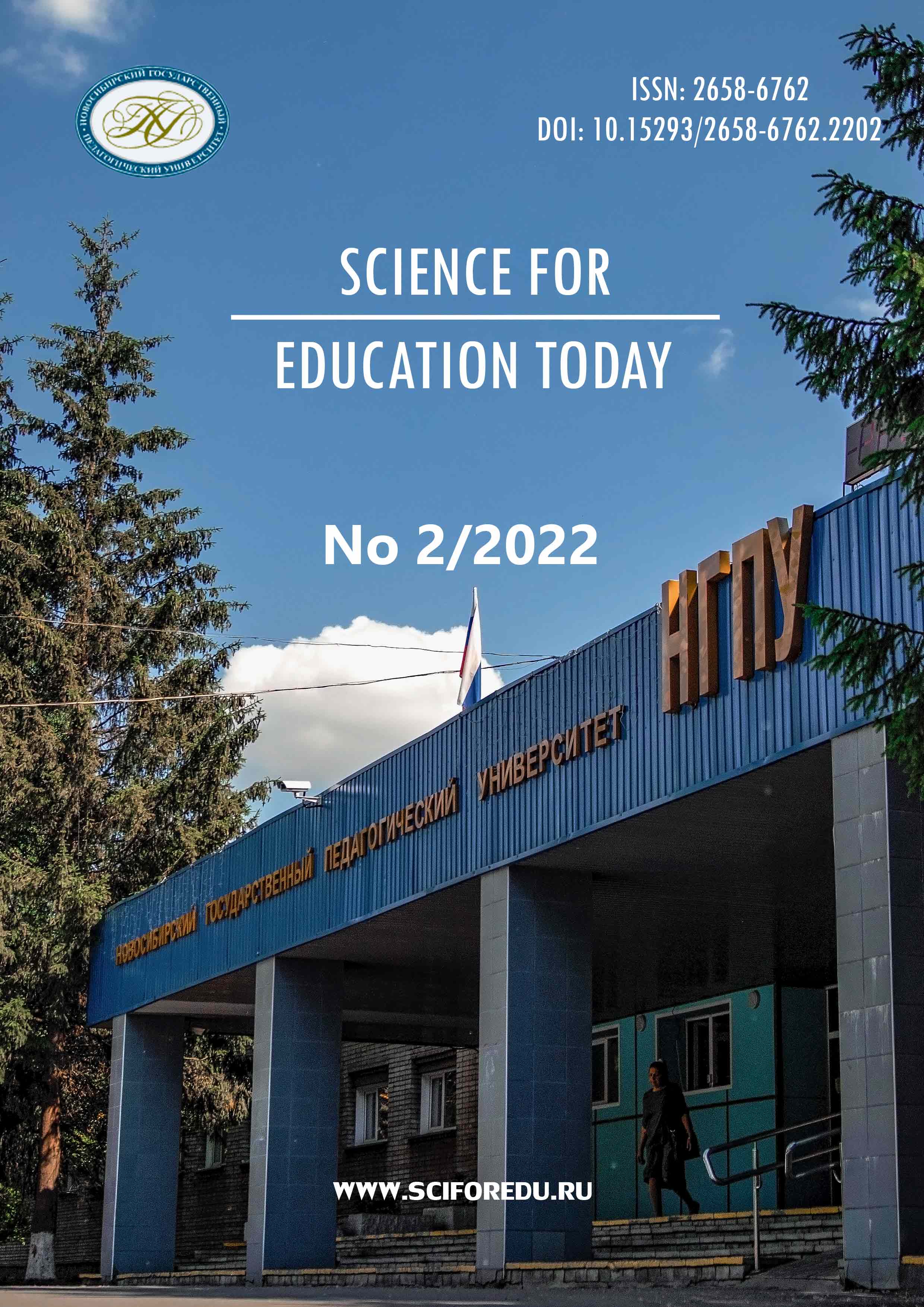Взаимосвязь между оценкой сформированности толерантности и желанием повысить конфликтологическую подготовку у будущих педагогов
Relationship between prospective teachers’ self-assessment of the level of tolerance and their willingness to increase conflict resolution competence
Author(s): Nadezhda Valeryevna Sivrikova, Tatyana Genad`evna Ptashko, Artem Evgenevich Perebeynos, Anfisa Vyacheslavovna Vorozheikina, Elena Gennadyevna ChernikovaSubject(s): Higher Education , Educational Psychology, Sociology of Education
Published by: Новосибирский государственный педагогический университет
Keywords: Prospective teacher; Conflict resolution readiness; Self- assessment of tolerance; Organizing interactions; Conflict resolution; Participants in a conflict situation; Tolerant qualities;
Summary/Abstract: Introduction. The article investigates prospective teachers’ motivation for targeted conflict resolution training. The purpose of the article is to identify and analyze the relationship between the self-assessment of the level of tolerance among undergraduate students majoring in education and their need to increase their conflict resolution competence. Materials and Methods. The study followed a systematic approach and used theoretical and empirical research methods. Primary empirical data were collected via a questionnaire survey. The sample consisted of 2nd-5th–year students (n=152) doing their initial teacher education degree. For mathematical analysis of the relationship between the study variables, the Spearman rank correlation method and logistic regression analysis were used. Results. The study revealed a relationship between students’ self-assessment of tolerant qualities and their willingness to increase their conflict resolution competence. The study found high levels of self-assessment of tolerance among prospective teachers. At the same time, in the structure of tolerant qualities, the rejection of violence prevails (X = 4.59). The results of the study show that students who consider themselves incapable of renouncing violence or obeying the rules are more willing to increase their conflict resolution competence. It was established that most students (76.3 %) have a need to increase conflict resolution readiness, namely, to develop the ability to organize interaction between participants in a conflict situation for its productive resolution. Only 21.1 % of the respondents argued that they do not need to increase their competence in conflict resolution. Conclusions. The article concludes about the relationship between prospective teacher’s self-assessment of level of tolerance and their motivation to increase their conflict resolution competence. Self-assessment of tolerance, being a significant professional quality, is important for future teachers in order to consider themselves as professionals who are able to interact with other participants in education in various conditions, including conflict situations.
Journal: Science for Education Today
- Issue Year: 12/2022
- Issue No: 2
- Page Range: 33-50
- Page Count: 18
- Language: Russian

